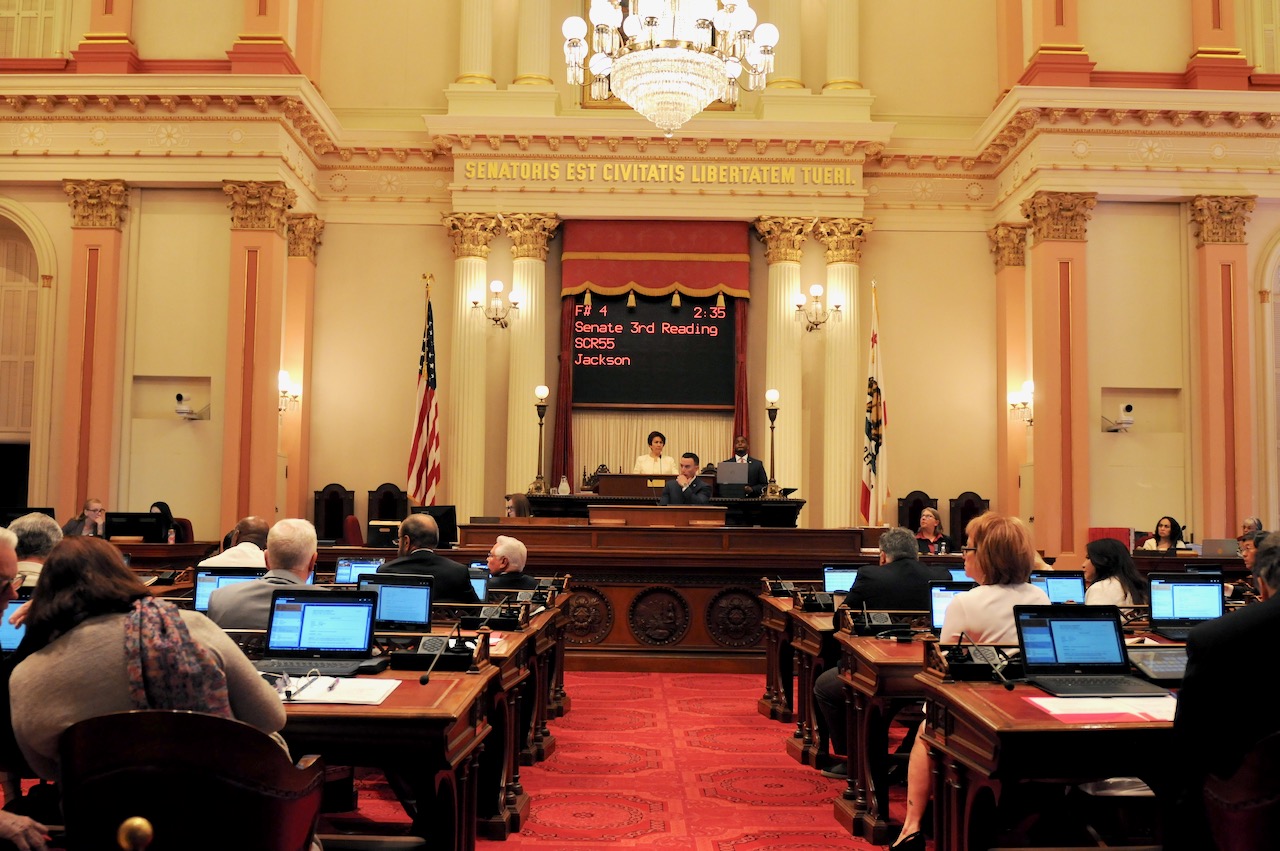
California State Capitol Dome. (Photo: Kevin Sanders for California Globe)
Do Lieutenant Governors Sign Bills?
There are two main sections of the California Constitution dealing with the Lt. Governor
By Chris Micheli, September 26, 2022 4:10 pm
The Governor of California obviously plays an integral role in the legislative process by providing final action (sign or veto) on bills. But, does the Lieutenant Governor of the state get to act on bills? The Governor and the Lt. Governor are set forth in Article V of the California Constitution. There are two main sections dealing with the Lt. Governor:
Section 9 provides: “The Lieutenant Governor shall have the same qualifications as the Governor. The Lieutenant Governor is President of the Senate but has only a casting vote.”
Section 10 provides, in part: “The Lieutenant Governor shall become Governor when a vacancy occurs in the office of Governor. The Lieutenant Governor shall act as Governor during the impeachment, absence from the State, or other temporary disability of the Governor or of a Governor-elect who fails to take office.”
As a result of Section 10 of Article V, the Lt. Governor acts as the Governor in specified instances, most commonly during the time that the Governor is out of state. When, for example, there are bills that must be acted upon, the Lt. Governor has the same power as the Governor to sign or veto bills.
This has happened in several circumstances. For example, in 2010, then Lt. Governor (and Acting Governor at the time) Abel Maldonado signed four bills. And, more recently, on March 31, 2022, Lt. Governor (and Acting Governor at the time) Eleni Kounalakis signed 2 bills.
So, not only does the Lieutenant Governor have the authority to sign (or veto) bills when acting as the governor, but also this authority has been used.
- This Is an Interesting Limit on Rulemaking Power - February 23, 2026
- Miscellaneous Civil Action Proceedings - February 23, 2026
- Probate Code Could Be a Basis for Statutory Interpretation Principles - February 22, 2026




